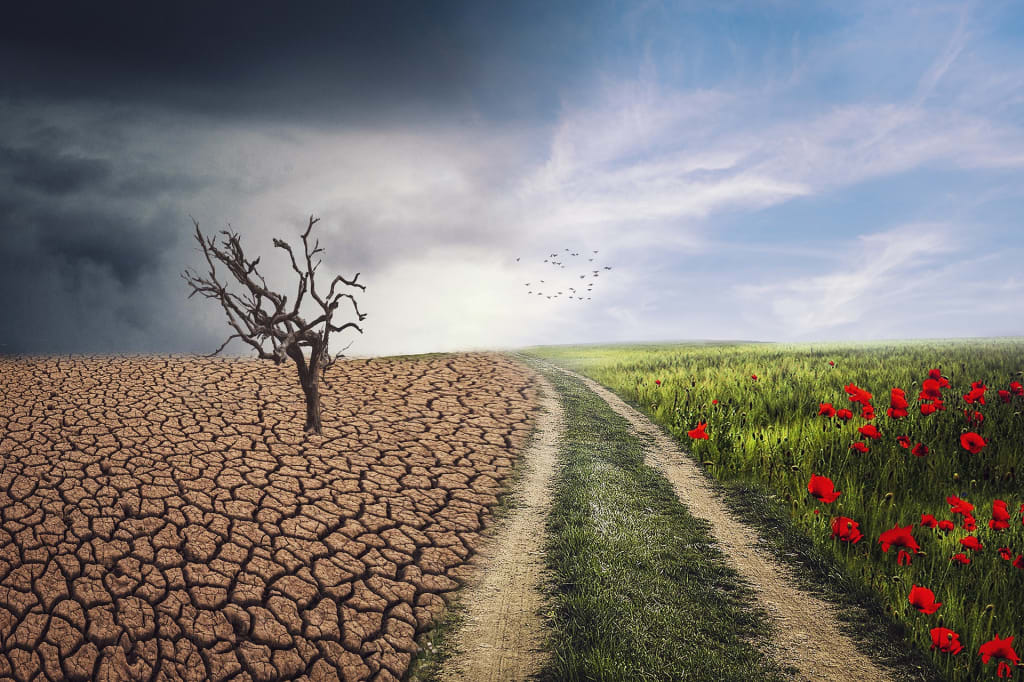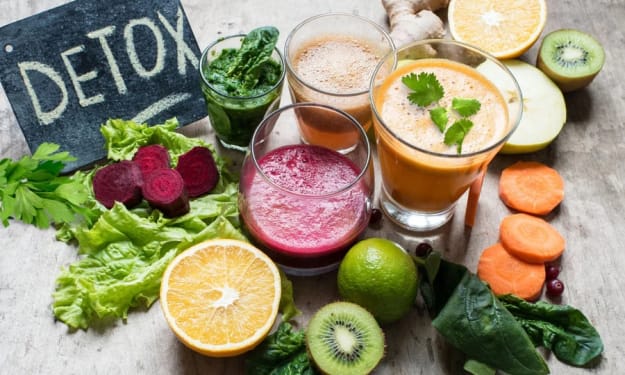The Bitter Harvest: How Climate Change Is Doing Harm to the Health of Our Diets
Health & Diet

Growing up in rural villages surrounded by expansive stretches of turgid crops and exuberant orchards, I saw the formality of plentiful harvesting every season. Fresh fruits and vegetables, full of nutrients, formed a core element in our diet. But across years, I began to notice a change—a slow revolution in quality and availability of these erstwhile plentiful resources. This wasn't just my imagination at work; it was symptomatic of something much more sinister: climate change. As I dug deeper into the issue at hand, I came to a realization: our climate is systematically making our diets less healthy.
A Changing Climate and Its Ramifications for Farming
Climate change can manifest in rising temperatures, unpredictable weather, severe droughts, and devastating floods. All of these play important roles in influencing the agricultural sector, hence affecting our dietary health. In this respect, crops are extremely susceptible to the slightest change in climate. Optimal growing conditions are interfered with by these changes, affecting yields and lowering their nutritional value.
Take, for instance, wheat—the staple food for billions of people. It is established through research that rising temperatures cut wheat yields by up to 6% per degree Celsius. This is not only a blow to food security but also to the nutritional value of wheat. With rising temperatures, protein in wheat decreases, further affecting dietary health among populations highly dependent on such grain.
Nutrient Depletion in Our Food
One of the scariest consequences of climate change is that it is causing a decrease in essential nutrients in our food. Increasing carbon dioxide hastens plant growth and reduces their nutrient density. Studies indicate that this increase in CO2 could lead to a decline in concentrations of vital nutrients like protein, zinc, and iron in crops like rice, wheat, and soybeans.
The depletion of such nutrients thus poses a big danger to world health where there is a predominantly plant-based diet. Currently, billions of people around the world suffer from iron and zinc deficiency. As these nutrients become scarcer in staple crops, then the risks of malnutrition with compromised immune system, stunted growth of the child, and susceptibility to diseases are increased.
The Ripple Effect on Food Systems
The dire consequences of climate change on agriculture range beyond nutrient depletion to the whole food system: from farm to fork. Extreme weather can completely destroy a crop, therefore creating food shortages and consequently leading to inflated prices. One example of such an event would be the 2019 severe floods that hit the Midwestern United States hard, which will now bring immense crop loss to consumers when they finally do reach the market in the form of high food prices and further burden on food banks.
These disruptions not only limit accessibility to healthy food but also promote consumption of their processed and less nutritive alternatives. People will naturally tend towards food options that are more affordable and densely high in sugar, fat, and other highly unnatural foods when something becomes either too expensive or little in quantity. Such changes in the diet bring along an increasing wave of obesity together with attendant problems in health like diabetes, cardiac diseases, and a few types of cancers.
The Vulnerability of Marine Life
The fallout in dietary health from climate change does not remain on land. The world's oceans provide a critical source of nutrition for billions of people and are under threat like never before. The change in rising temperatures of the sea and its acidification, coupled with overfishing, threatens fish supplies and the disruption of marine ecosystems.
Fish and seafood are rich sources of omega-3 fatty acids, which are necessary for good brain health and cardiovascular function. Climate change alters the distribution of almost all marine species, reducing the availability of such nutritious food. This poses a serious risk to nutrition in communities that have a high reliance on seafood for their protein intake.
Even the Socioeconomic Divide
In many cases, this is intensified by the presence of existing socioeconomic inequalities, particularly in dietary health. Affluent countries and communities may have the wherewithal to adapt the circumstances by importing food or investing in new agricultural technologies. Poorer regions often lack these capabilities and thus are more susceptible to food insecurity and malnutrition.
Smallholder farmers without irrigation in sub-Saharan Africa are at the mercy of rainfall that is becoming increasingly unpredictable. Crop losses and loss of livestock translate directly into food shortages and higher prices, thereby exacerbating even more the difficulty for a low-income family to afford a healthful diet. In so doing, a dangerous cycle of poverty and poor health is started, which becomes ever more difficult to break with every year that passes.
Innovative Solutions and Sustainable Practices
Despite these daunting challenges, there is hope. Innovative solutions and sustainable practices can help cushion the impact of climate change on our dietary health. For example, agroecology advocates for farming in tandem with nature. Some of the strategies it employs include crop diversification, soil conversation, and integrated pest management. These approaches enhance resilience to climate change and help maintain the fertility of the soil while increasing biodiversity.
The other very promising area of technological advances involves precision farming, which makes use of data and technology to better farming practices, hence improving crop yields with less use of resources. Also in line are vertical farming, hydroponics, and aquaponics, which also offer the best promising trends to food production by growing crops in a protected environment, hence reducing implications of harsh weather.
Reducing food wastage is another important step toward food security and dietary health. It is estimated that about a third of all foods produced globally are wasted, emitting GHGs while denying millions of access to food. Adopting better storage, transport, and consumption practices can therefore take us a long way on both food security and climate change.
The Role of Policy and Advocacy
Policy and advocacy are the cardinal points in the struggle against the intersection of climate and dietary health. Climate action and food security must be at the forefront of agendas by governments, along with policy supportive of sustainable agriculture, greenhouse gas emission reduction, and healthy diets.
This inherently is also part of international cooperation. Climate change is a global problem that has to be tackled with collaborative effort. Organizations like the United Nations, WHO, and FAO can facilitate collaboration and provide support to vulnerable regions.
Small things that as individuals we can do about this, include making informed choices on the intake of food, Buying from local and sustainable food producers, raising our voices to advocate for policies addressing climate change and dietary health.
Conclusion
There lies an intricate and indeed profound link between climate change and our health as far as diet goes. Starting from the loss of nutrients in crops, through disruptions of food systems, to the vulnerability of marine lives, the impact is huge. But by innovative solutions, sustainable practices, and concerted efforts at all levels, we can mitigate these effects and rebuild resilience in the food system.
Thinking about the changes I have witnessed in my childhood fields and orchards, this definitely strikes a chord. It's time to act, because daily choices today will determine our—and future generations'—well-being.
About the Creator
Dave Karpinsky, PhD, MBA
A world traveler, educator, consultant, entrepreneur, husband and a father sharing his experience and wisdom. Join me as I weave my narrative, offering a window into a life lived fully and passionately. Please subscribe :-)
Enjoyed the story? Support the Creator.
Subscribe for free to receive all their stories in your feed. You could also pledge your support or give them a one-off tip, letting them know you appreciate their work.






Comments
There are no comments for this story
Be the first to respond and start the conversation.